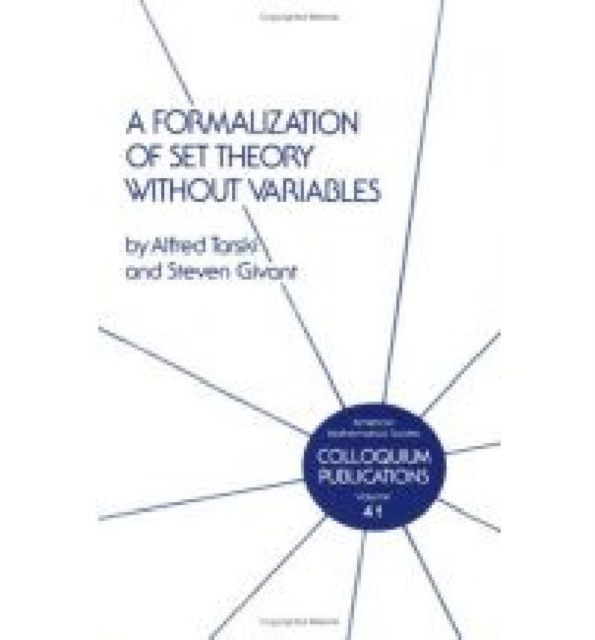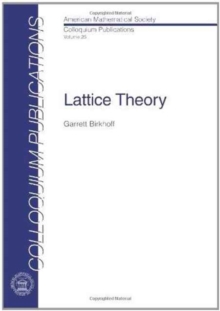
A Formalization of Set Theory without Variables Paperback / softback
Part of the Colloquium Publications series
Paperback / softback
Description
Completed in 1983, this work culminates nearly half a century of the late Alfred Tarski's foundational studies in logic, mathematics, and the philosophy of science.
Written in collaboration with Steven Givant, the book appeals to a very broad audience, and requires only a familiarity with first-order logic.
It is of great interest to logicians and mathematicians interested in the foundations of mathematics, but also to philosophers interested in logic, semantics, algebraic logic, or the methodology of the deductive sciences, and to computer scientists interested in developing very simple computer languages rich enough for mathematical and scientific applications.
The authors show that set theory and number theory can be developed within the framework of a new, different, and simple equational formalism, closely related to the formalism of the theory of relation algebras.
There are no variables, quantifiers, or sentential connectives.Predicates are constructed from two atomic binary predicates (which denote the relations of identity and set-theoretic membership) by repeated applications of four operators that are analogues of the well-known operations of relative product, conversion, Boolean addition, and complementation.
All mathematical statements are expressed as equations between predicates.
There are ten logical axiom schemata and just one rule of inference: the one of replacing equals by equals, familiar from high school algebra.
Though such a simple formalism may appear limited in its powers of expression and proof, this book proves quite the opposite.
The authors show that it provides a framework for the formalization of practically all known systems of set theory, and hence for the development of all classical mathematics.This book contains numerous applications of the main results to diverse areas of foundational research: propositional logic; semantics; first-order logics with finitely many variables; definability and axiomatizability questions in set theory, Peano arithmetic, and real number theory; representation and decision problems in the theory of relation algebras; and, decision problems in equational logic.
Information
-
Item not Available
- Format:Paperback / softback
- Pages:318 pages
- Publisher:American Mathematical Society
- Publication Date:30/12/1987
- Category:
- ISBN:9780821810415
Information
-
Item not Available
- Format:Paperback / softback
- Pages:318 pages
- Publisher:American Mathematical Society
- Publication Date:30/12/1987
- Category:
- ISBN:9780821810415










